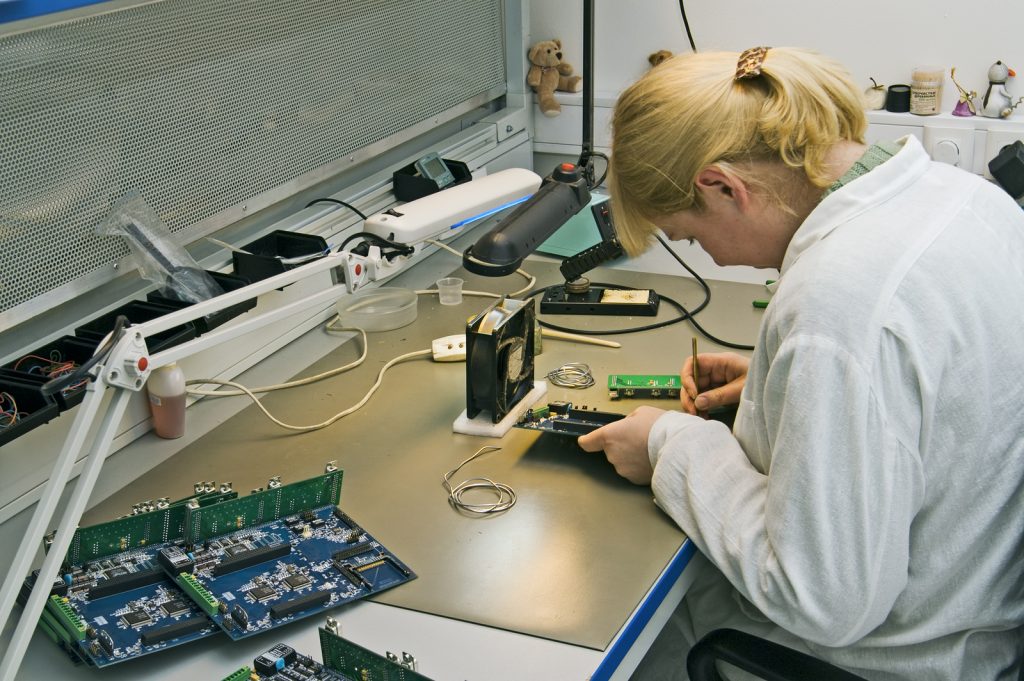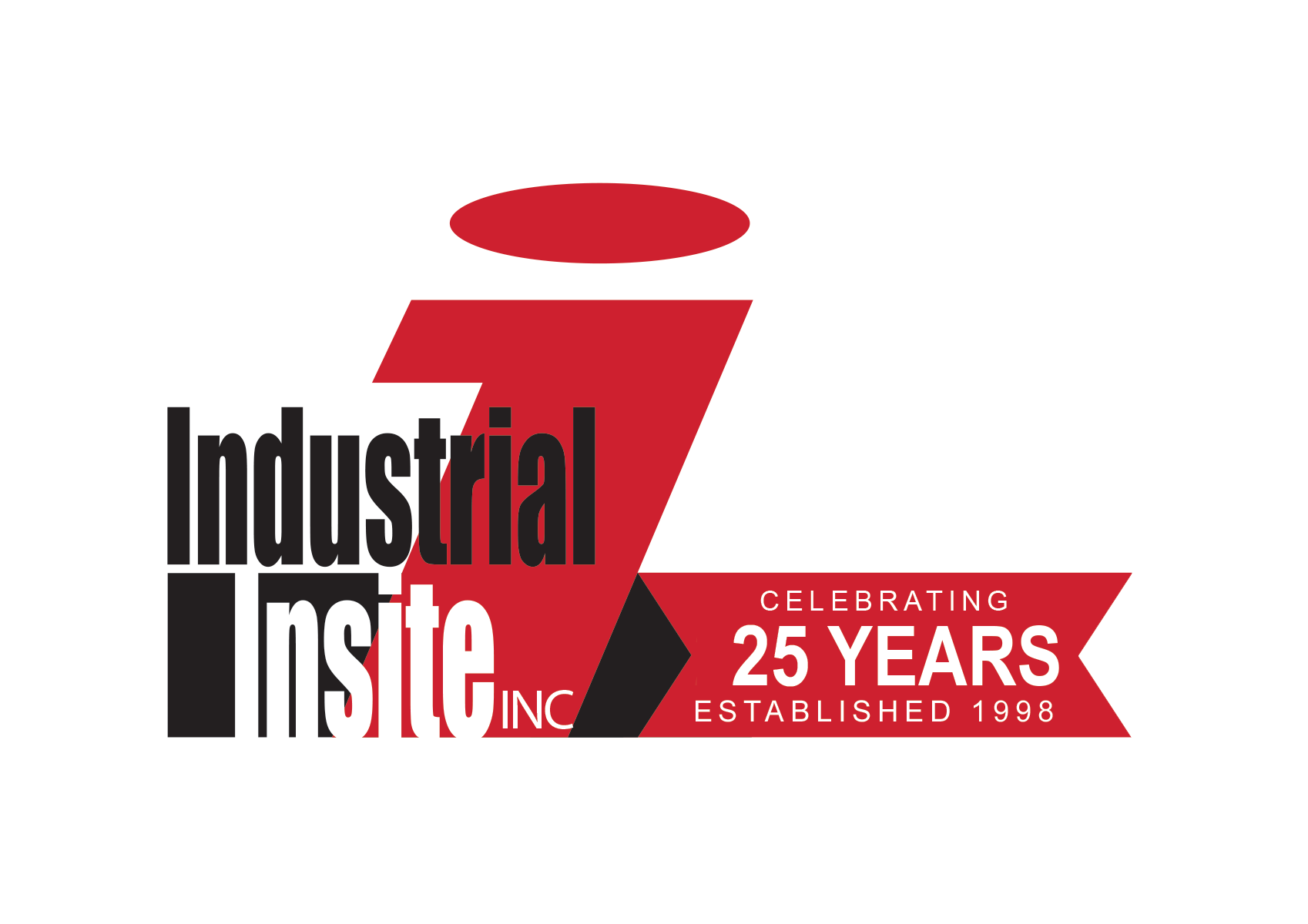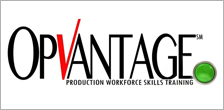Soldering Training and IPC Certification

By providing IPC training and certification to your workers, you demonstrate your commitment to meeting the quality standards of your customers, regulators and suppliers to IPC standards. With Industrial Insite by your side, it has never been easier.
Visual Inspection
IPC-A-610 Specialist Acceptability of Electronic Assemblies
The most widely used standard published by the IPC, it has an international reputation as the source for end product acceptance criteria for consumer and high reliability printed wiring assemblies. Worker certification demonstrates your commitment to customer requirements and greatly contributes to your ISO-9000 or other quality assurance initiatives.
Soldering Training
J-STD-001 Specialist Requirements for Soldered Electrical and Electronic Assemblies
The authority for electronics assembly manufacturing, the standard describes materials, methods and verification criteria for producing high quality soldered interconnections. It also emphasizes process control and sets industry-consensus requirements for a broad range of electronic products.
J-STD-001 Specialist Space Addendum is also available to help meet NASA procurements.
ESD Control for Electronics Assembly Created jointly by the ESD Association and IPC, this industry-recognized training helps electronic assemblers better understand how ESD may be controlled in a manufacturing facility to prevent damage.
Bare Board Inspection
IPC-A-600 Specialist Acceptability of Printed Boards
This document sets the standard for PCB workmanship quality with its comprehensive acceptance criteria for target, acceptable and nonconforming conditions on bare, rigid and flexible boards. Improve your understanding of printed board quality issues and enhance communication with your suppliers and customers. Because of its importance to both the PCB manufacturer and assembler, the IPC-A-600 has become one of the most widely used documents ever published by IPC.
Component Rework/Board Repair
IPC-7711/7721 Specialist Rework, Modification & Repair of Electronic Assemblies
Realize dramatic cost savings by repairing and reworking electronic assemblies and printed circuit boards. This widely-used standard offers a wealth of industry-approved techniques on through-hole and surface-mount rework as well as land, conductor and laminate repair. It covers procedural requirements, tools, materials and methods for removing and replacing conformal coatings, surface mount and through-hole components while maintaining the original quality acceptance requirements. The standard also includes procedures for repairing and modifying boards and assemblies. Updated with additional support for lead free, BGAs and flex-print repairs, this procedural specification is relied on by FAA-approved repair stations to maintain the original quality of repaired assemblies. Industrial Insite has certified FAA repair station technicians in this versatile procedural specification.
Cable Wire Harness Assemblies
IPC/WHMA-A-620 Specialist Requirements & Acceptance for Cable & Wire Harness Assemblies
The first industry consensus standard for cable and wire harness fabrication and installation, the standard defines classes of products and includes criteria for Target, Acceptable, Process Indicator and Defect conditions to support the collection of visual quality acceptability requirements for each class.
Cable and Wire Harness Practical Workmanship Training
This hands-on training class is designed to help users become familiar with the basics of cable and wire harness fabrication. Included are procedures and skill building exercises for soldered terminations, crimped terminations, coax-clamping and crimping ground ferrules, IDC mass terminations and modular connectors. Additional company specific procedures may be added to meet your performance improvement or process requirements.
Other Soldering Skills Training Offerings
In additional to IPC Certification training, Industrial Insite excels at capturing your current processes in a customized lesson plan to ensure consistent, auditable results that are compliant with your requirements. We also offer three basic soldering skills classes which can be customized to align with your in-house processes.
The Hand Soldering Fundamentals class is designed to familiarize workers new to soldering with basic concepts, equipment and protocols. Students have an opportunity to learn and develop the knowledge and hands on skill necessary to complete a solder connection that meets the IPC J-STD-001 acceptance criteria for Class 3 assemblies.
The Advanced Soldering Techniques class includes specialized rework techniques, resistive re-flow soldering, soldering under magnification, very fine pitch SMT soldering, characteristics of lead-free soldering, RoHS requirements, and identification of lead-free versus leaded assemblies.
The Fine Pitch Soldering Techniques class provide workers with an opportunity to learn and develop the knowledge and hands on skill necessary to complete fine-pitch soldering connections. Topics include determining the magnification powers, understanding pitch measurement, and demonstrating techniques used to solder fine pitch component leads that meet the requirements of IPC J-STD-001 criteria for Class 3 assemblies.
The ESD Control class provides workers with a better understanding of how ESD may be controlled in a manufacturing facility – both in the work area and during the handling, storing and trasporting of ESD sensitive devices – to prevent ESD damage.
Soldering Training and IPC Certification Programs
Contact us to learn more about our Soldering Training and IPC Certification programs.




